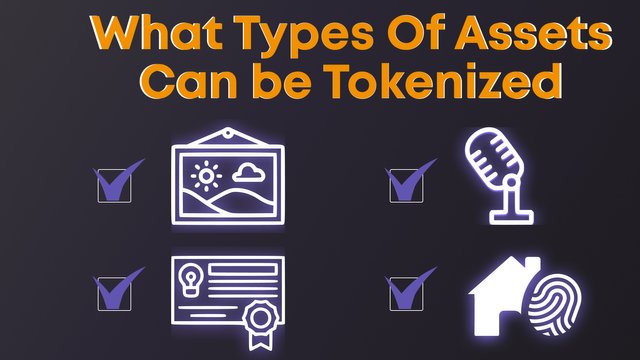Now many people are talking about tokenization. This is not yet a global trend, but it is about to become one. Which assets will be tokenized first when this happens?
Art and Collectibles
Art and collectibles, from timeless paintings to rare in-game items, have long been esteemed as valuable assets for a few. Blockchain technology disrupts this exclusivity by enabling the tokenization of these assets, where each token represents an ownership stake. Tokenization democratizes art investment by allowing anyone to purchase a fraction of a high-value asset, opening up a world of possibilities for both investors and artists.
Consider, for instance, the sale of an expensive Picasso painting. Instead of a single buyer shouldering the entire cost, the painting could be tokenized into millions of shares. Individuals could then buy tokens representing a portion of the painting, owning a piece of the masterpiece. And it is especially easy and profitable to tokenize digital assets (for example, digital art). Not only does this make art investing more accessible, but it also offers better liquidity since tokens can be bought or sold on demand online.
Example: CryptoPunks by Larva Labs. These are 10,000 unique pixel art avatars that were created in 2017. They have become one of the most popular NFT collections. Some of the avatars were sold for millions of dollars.
Intellectual Property
Intellectual property rights, like copyrights, patents, and trademarks, have always been difficult assets to value, trade, or leverage due to their intangible nature. If the copyright holder is one person or legal entity, this is ok. But if several people own the property rights, the transfer of the right can become legal hell. If you have watched the movie "Tetris", you will understand what it is all about.
Tokenization offers a solution to these complexities. By converting these rights into tradeable tokens, intellectual property owners can monetize their assets more efficiently, attracting investors who can buy, sell, or hold these tokens based on their market strategy.
Example: OpenSea Clona Software. This NFT marketplace allows users to create coins and trade NFTs. Simply put, with the help of the Clona, users can launch an NFT platform similar to OpenSea.
Royalties
In the traditional model, royalties from music, books, or patents have been an income stream typically restricted to the creators or rights holders. The same problems are relevant here as for intellectual property.
Through tokenization, royalties can be divided into countless tokens and sold to investors worldwide. Each time the song is streamed, the book is sold, or the patent is used, the token holders receive a portion of the proceeds. This model generates a potentially stable passive income, making it a captivating addition to an investment portfolio. For artists, royalty tokenization is a way to raise funds for their work.
Example: Royal. It is a platform that allows fans to invest in songs by their favorite artists.

Real Estate
Moving on to real estate, tokenization is set to challenge the status quo, redefining how properties are bought, sold, and owned. Real estate has been a favored investment class, but it often comes with high entry barriers, slow transaction processes, and lack of liquidity.
Tokenizing real estate involves issuing digital tokens representing ownership shares in a property. Much like art, instead of one investor buying an entire property, tens or hundreds of investors can buy 'pieces' of the property through tokens. This dramatically lowers the entry barrier, enabling more people to participate in property investment.
Tokenization also brings the advantage of enhanced liquidity. Traditionally, selling real estate is a lengthy process, but tokens can be traded instantly on a global market, providing quick access to capital. Additionally, by dividing a property into tokens, investors can diversify their portfolios by investing in multiple properties with the same amount of money rather than committing to a single investment.
Example: Home Key. This platform allows you to buy and invest in tokenized real estate. This makes real estate more affordable and allows you to get a higher ROI.